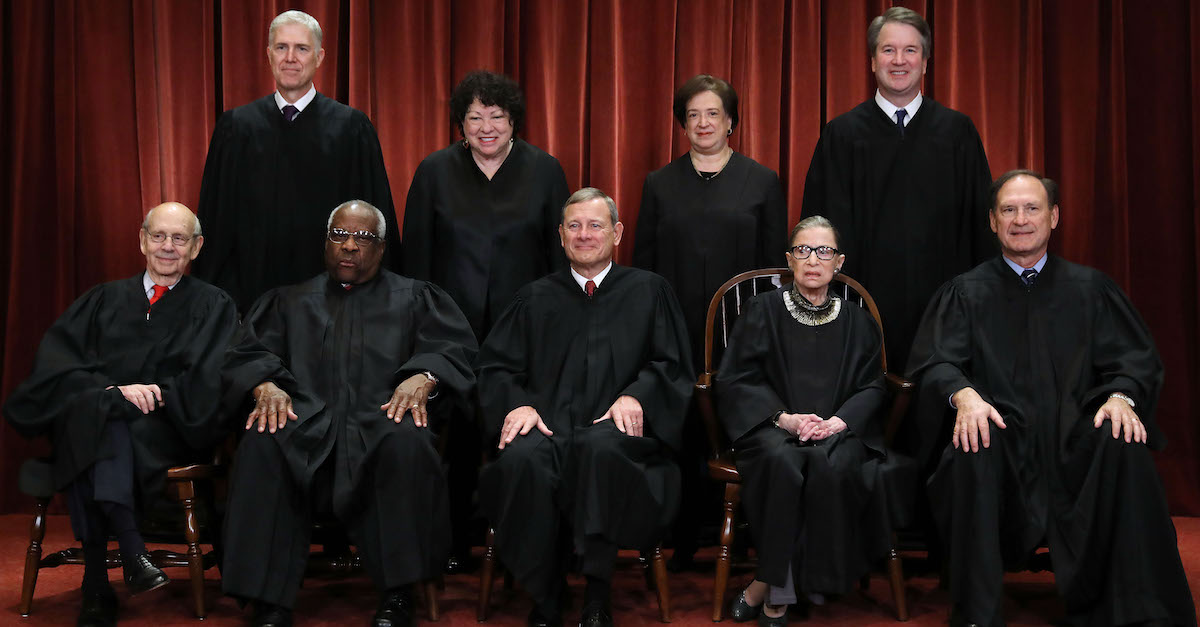
The United States Supreme Court on Thursday ruled that federal courts not have the authority to intervene in cases of partisan gerrymandering – the setting of electoral boundaries to favor the political interests of the party in power. The court decided that such claims “present political questions beyond the reach of federal courts.”
In a 5-4 vote along ideological lines, Chief Justice John Roberts’s invocation of the court’s Political Question doctrine means that it is constitutionally permissible for voting districts to be drawn with the specific intent that they will disadvantage voters of a particular political ideology. The ruling is a severe blow to voting rights advocates challenging the disproportionate impact gerrymandering can have on voting power.
Before the court were two combined gerrymandering challenges from North Carolina and Maryland.
In Maryland, a state where Democrats outnumber Republicans by approximately 2-to-1, Republicans challenged the constitutionality of Democratic voting maps that turned the state’s previously 4-4 eight-member delegation into a 7-1 Democratic advantage in the 2016 election.
Similarly, in North Carolina, where the voting populace is split about evenly between the two parties, Republicans redrew state voting boundaries and even publicly declared they were doing so with the intention of creating a 10-3 Republican advantage. As expected, despite Republicans winning only 53-percent of the statewide vote in the 2016 election, they went on to win 10 of 13 of the state’s congressional districts.
Roberts reasoned that the question before the court– “determining when political gerrymandering has gone too far”–cannot be grounded in a “limited and precise rationale” because the issue “lacks judicially discoverable and manageable standards for resolving.”
He conceded that the ruling may enable increasingly unequitable political representation, but says that such a result does violate any constitutional mandate where no standard for determination exists.
“Partisan gerrymandering claims rest on an instinct that groups with a certain level of political support should enjoy a commensurate level of political power and influence,” Roberts wrote. “Such claims invariably sound in a desire for proportional representation, but the Constitution does not require proportional representation, and federal courts are neither equipped nor authorized to apportion political power as a matter of fairness. It is not even clear what fairness looks like in this context.”
While the ruling essentially ended future legal challenges to partisan gerrymandering, Roberts reiterated that states are free to address the issue, and noted that Congress has the power to pass legislation curtailing the practice. He also stated that non-partisan gerrymandering may still be adjudicated if it raises constitutional issues, such as districts drawn to disadvantage a voting group based on its racial makeup.
“We express no view on any of these pending proposals. We simply note that the avenue for reform established by the Framers, and used by Congress in the past, remains open,” Roberts wrote.
In a scathing dissent, Justice Elena Kagan explicitly denounced the majority opinion, stressing the significance of the court’s decision and calling it a low point for democracy.
“I think it important to underscore that fact: The majority disputes none of what I have said (or will say) about how gerrymanders undermine democracy. Indeed, the majority concedes (really, how could it not?) that gerrymandering is ‘incompatible with democratic principles,’” she said from the bench.
Justice Kagan closed her dissent on a particularly somber note: “Of all times to abandon the Court’s duty to declare the law, this was not the one. The practices challenged in these cases imperil our system of government. Part of the Court’s role in that system is to defend its foundations. None is more important than free and fair elections. With respect but deep sadness, I dissent. ”
Thursday’s ruling means that both the Maryland and North Carolina cases will be sent back to the lower courts with instructions to dismiss for lack of jurisdiction.
[Image via Chip Somodevilla/Getty Images]